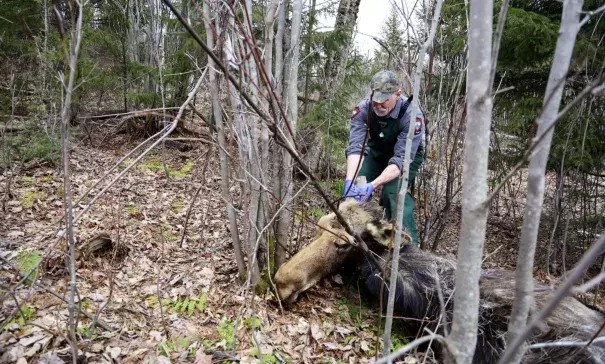Headline
Climate Change Great For Winter Ticks, Very Bad For Moose Calves

State biologist Lee Kantar examines a dead moose on April 26, 2022. Moose Number 59 was captured and fitted with a radio collar in the winter of 2014. The moose showed signs of anemia, which Kantar says means she had been fed on by ticks and had extreme blood loss. Credit: Esta Pratt-Kielley, Maine Public
More than 85% of Maine moose calves tracked by researchers last year died before their first birthday because of surging winter tick populations. Solid cold and sustained snow cover kill off winter tick larvae. Climate change, however, is lengthening autumn and shortening winter, allowing the ticks to move further north into moose populations otherwise unchecked by predators. "Winter ticks are acting as a predator in the system," said Henry Jones, the lead moose biologist with New Hampshire’s Fish & Game Department, "and they are enhanced by the shifting climate, by the warming climate.” (WBUR)
To receive climate stories like this in your inbox daily click here to sign up for the Hot News Newsletter from Climate Nexus:


